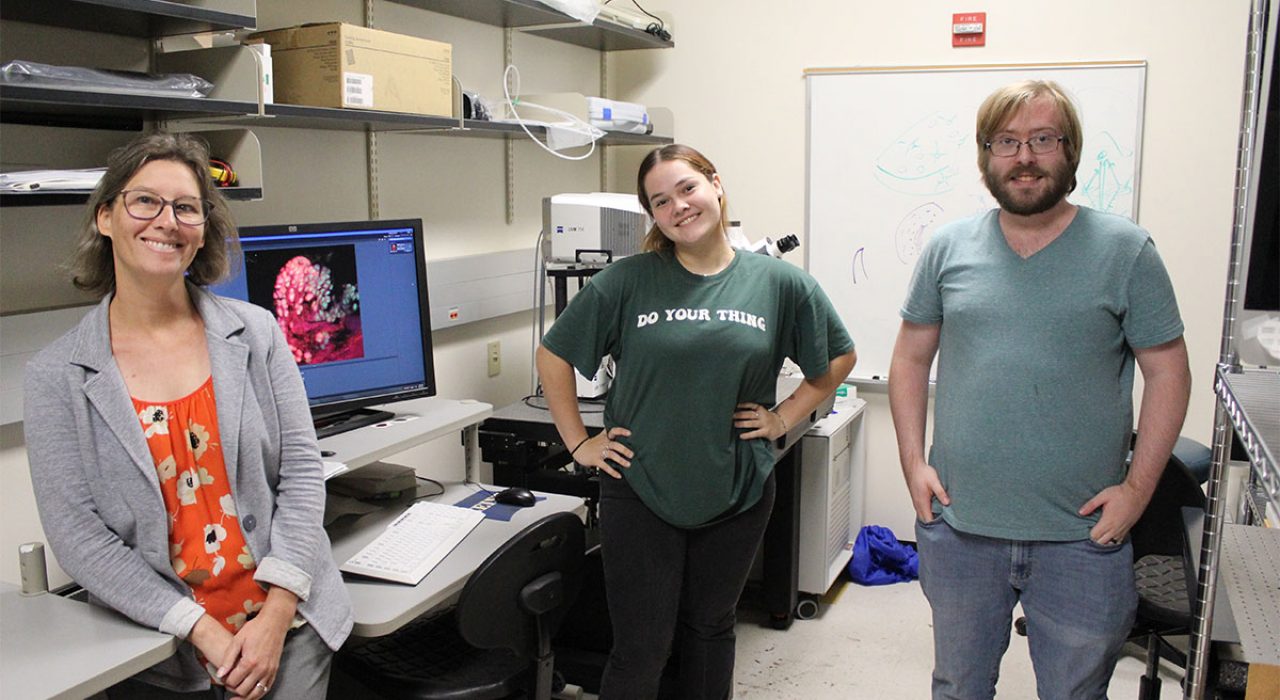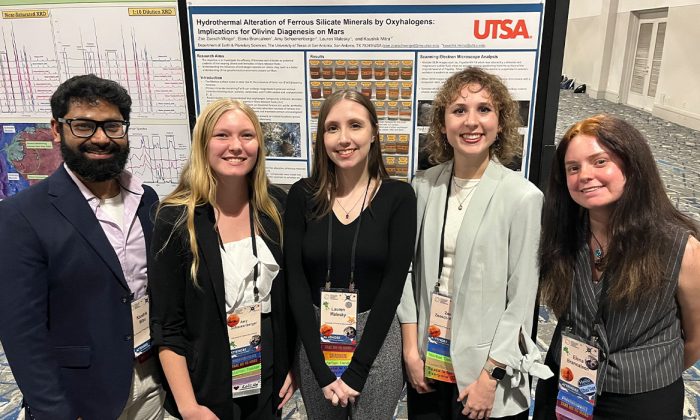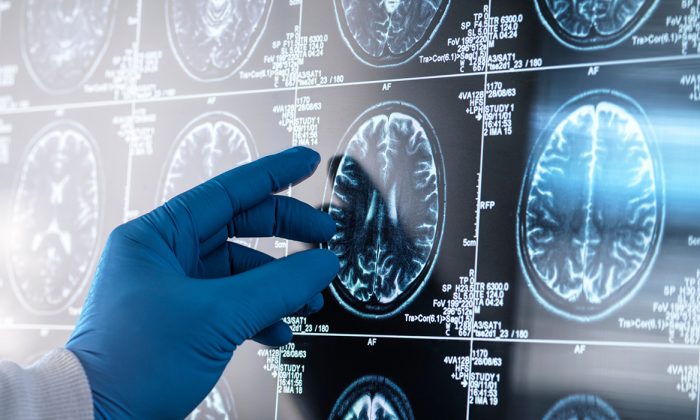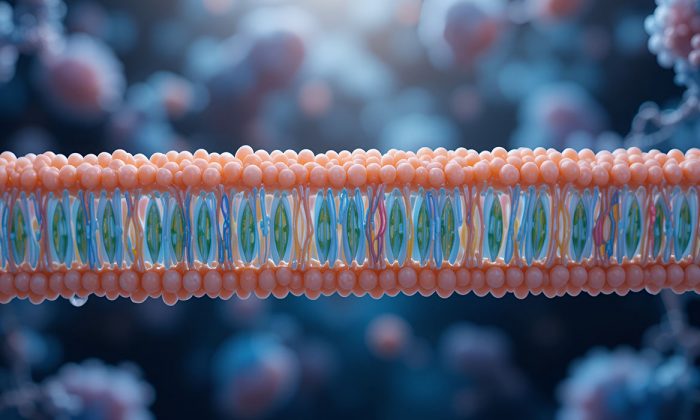Students working at The Macpherson Lab during the summer gained firsthand research experience while trying to uncover the causes behind loss of taste during chemotherapy treatment.
Working under the supervision of Associate Professor Lindsey Macpherson and doctoral student Ryan Wood, the students aim to demystify this phenomenon and bring the medical community one step closer to helping chemotherapy patients eat and maintain proper nutrition throughout their treatment.
Loss of taste is a common side effect of chemotherapy, often leading to loss of appetite and weight loss. The American Cancer Society describes the problem as manifesting in several ways — from a lack of smell and aversion to certain odors to a metallic or bitter taste accompanying some foods — all of which can lead to undereating, weight loss and delayed healing.
When patients are treated with chemotherapy drugs, it causes inflammation in the tongue, which leads to a lot of taste loss, said Victoria Valtr, an intern working in the lab.
“We’re looking at how we can combat that,” Valtr said. “We want to understand how inflammation is changing [their sense of taste] and we want to find a workaround to get these chemotherapy patients to have all their taste buds restored, to be able to taste food again and to improve their quality of life.”
That is the ultimate goal of the project, she said. “But it starts on the molecular level, trying to understand the root cause of it.”
Read more about their work at Sombrilla Magazine.



